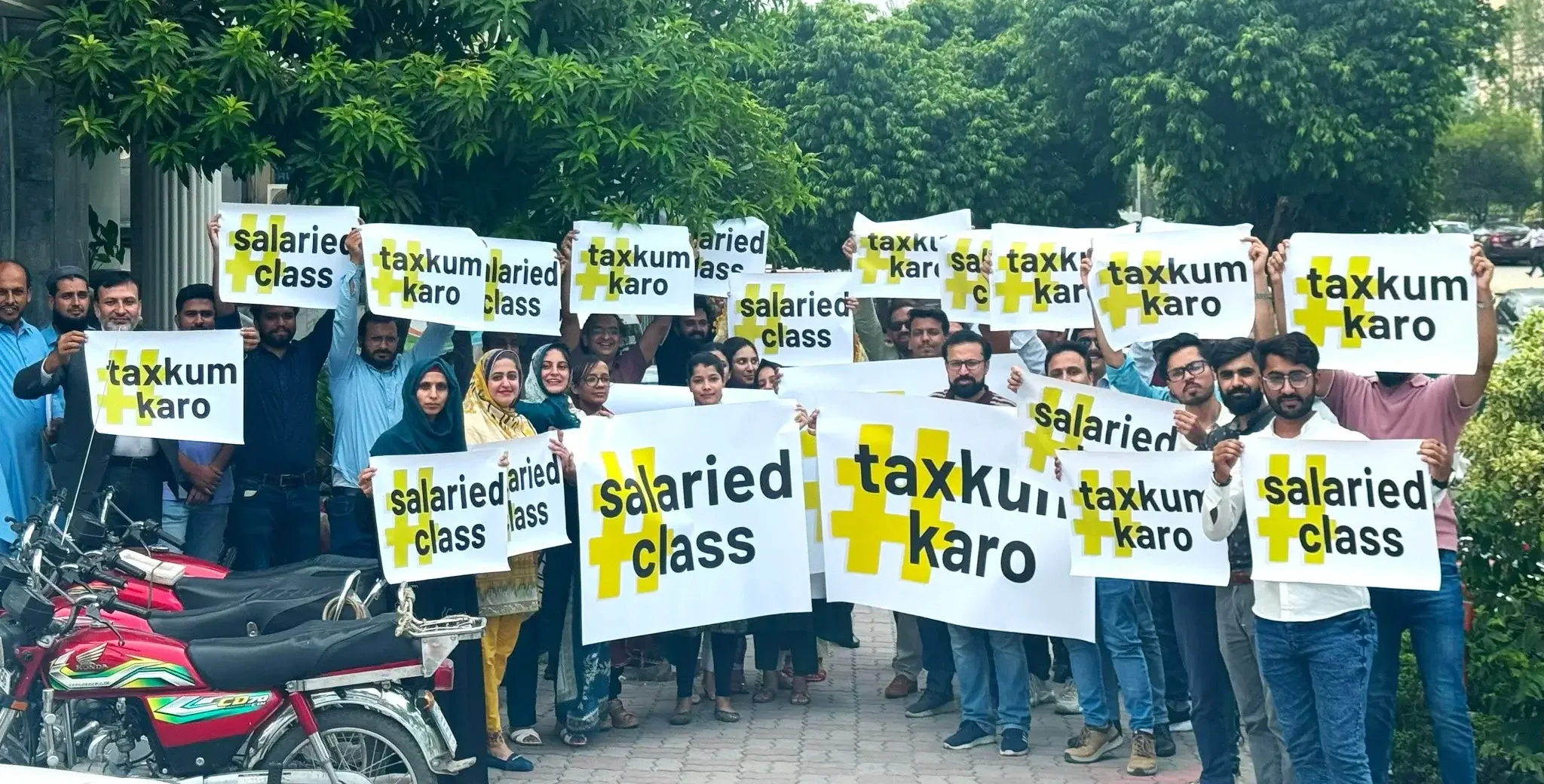As the Government of Pakistan begins drafting the Federal Budget 2025-26, the country’s salaried class—already burdened by high inflation and stagnant wages—is calling for immediate tax relief. In a comprehensive proposal submitted to the Ministry of Finance, the Salaried Class Alliance Pakistan has urged the government to double the income tax exemption threshold to Rs1.2 million annually (Rs100,000 per month), up from the current Rs600,000 per year.
The group also called for restoring tax incentives, adjusting tax slabs, and eliminating the additional 10% surcharge introduced under the Finance Act 2024, which has disproportionately impacted Pakistan’s working population.
Current Income Tax Burden on Salaried Individuals
At present, salaried individuals earning up to Rs600,000 per year are exempt from income tax. However, with rising costs of living, fuel, healthcare, and housing, this threshold is no longer aligned with the economic reality of Pakistan’s middle class.
According to the Salaried Class Alliance:
“Salaried individuals are already struggling with stagnant wages amidst historically high inflation, making it difficult to maintain a reasonable standard of living.”
One alarming estimate shared in the proposal shows that tax collection from the salaried class rose from Rs76 billion in 2019 to Rs570 billion in 2025, a nearly 650% increase. While the government aims to enhance revenue collection, this spike has placed a disproportionate burden on law-abiding taxpayers in the formal sector.
Key Proposals from the Salaried Class Alliance
The group has put forward several suggestions to create a fairer and more balanced tax system, including:
1. Increase Income Tax Exemption Limit
- Raise the annual exemption threshold to Rs1.2 million, in line with rising inflation and regional benchmarks.
2. Adjust Tax Slabs to Reflect Cost of Living
- Revise the income tax slabs to align with current economic conditions and global best practices.
- Reinstate pre-Finance Act 2024 tax slab rates to ensure more equitable taxation.
3. Remove the 10% Additional Surcharge
- Eliminate the penal 10% surcharge on salaried employees in the formal sector, arguing that compliant taxpayers should not be punished.
4. Reintroduce Investment-Linked Tax Incentives
- Restore tax credits and deductible allowances for:
- Investments in shares, mutual funds, sukuk
- Life and health insurance
- Retirement savings plans
5. Expand Allowances and Deductions
- Increase the medical allowance exemption from 10% to 25% to reflect rising healthcare costs.
- Introduce a 15% deductible commuting allowance to offset transport and employment-related expenses.
6. Comparative Tax Relief in Regional Countries
The proposal highlights how Pakistan’s exemption and deduction policies lag behind neighboring countries:
| Country | Exemption Limit (in PKR equivalent) | Deductible Allowances |
|---|---|---|
| India | Rs2.34 million | Medical, investments, home loans |
| Bangladesh | Rs890,000 | Medical, education, housing |
| Vietnam | Rs1.57 million | Personal & dependent deductions |
| Nepal | Rs1.05 million (individual) Rs1.26 million (couples) | Retirement, education, medical |
Economic Impacts and Workforce Migration
The group also warned that the increased tax burden is forcing skilled professionals to seek jobs abroad, contributing to a growing brain drain. They stressed that the removal of deductible financial reliefs, including tax credits on banking profits and insurance policies, has further eroded the financial stability of the salaried population.
Call for Broadening the Tax Base
In addition to requesting relief for the salaried segment, the Salaried Class Alliance urged the government to expand the tax net by targeting the undocumented economy and non-filers, many of whom continue to evade taxation with impunity.
“We respectfully urge the Ministry of Finance to prioritize structural reforms that ease the burden on formal sector employees while holding informal sectors equally accountable.”
Government’s Response So Far
Finance Minister Muhammad Aurangzeb has acknowledged the challenges faced by the salaried class and hinted at potential reforms in the upcoming budget. In a recent statement, he confirmed that the government is working to reduce the financial burden on the working population and exploring adjustments to tax slabs for the next fiscal year.
The Federal Budget 2025-26 presents a critical opportunity for the government to rebalance the tax structure, address the inequities faced by salaried taxpayers, and restore public trust in the taxation system.
As inflation continues to rise and purchasing power declines, offering meaningful tax relief and reintroducing investment incentives will not only help the salaried class survive—but also revive confidence in the government’s fiscal policy.
Stay tuned to AllPKTaxes.com for real-time updates on:
- Budget 2025-26 highlights
- Tax reforms and exemption thresholds
- Salary tax calculator tools
- Expert analysis on income tax laws in Pakistan

